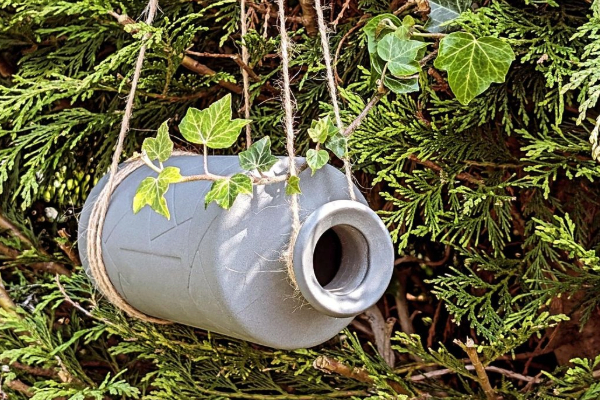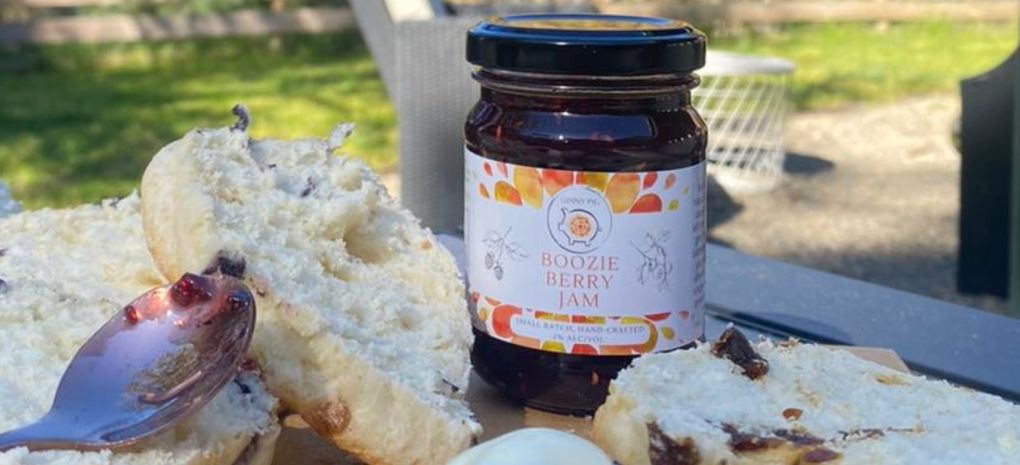
18/10/2024 Distillers share how their distilleries are taking eco-friendly measures to deal with waste production and reduce their carbon footprint
Waste production is one of the most unavoidable and disadvantageous parts of running a distillery, especially at a time when climate change is a prevailing crisis. However, the issue is a major setback only if not taken care of. From taking the precautionary route to minimize waste to recycling it into something useful, below are the different sustainable methods that distilleries have incorporated to mitigate the havoc their trash can have on the environment.
Image Title and Credits: Igneous Gin’s ceramic bottle
1. Sustainable Energy Practices
The premium rum brand, V RUM, is focused on minimizing its waste production by focusing on reducing carbon emissions through the use of cleaner energy. Head Distiller Michael Melrose pointed out that the production process is set up such that there is hardly any waste to worry about. This can easily be attributed to the brand’s use of 100% renewable electricity that they get from Ecotricity, which is known for providing greener energy.
2. Sticking To Eco-friendly Packaging
The gin brand Igneous makes its own bottles out of ceramics, which can be a better alternative to glass bottles due to their durability compared to the latter. Igneous even refills its gin for its consumers, thus reducing the number of bottles that are prone to end up in garbage.
Also Read: Know Your Distillers: Miles Pote
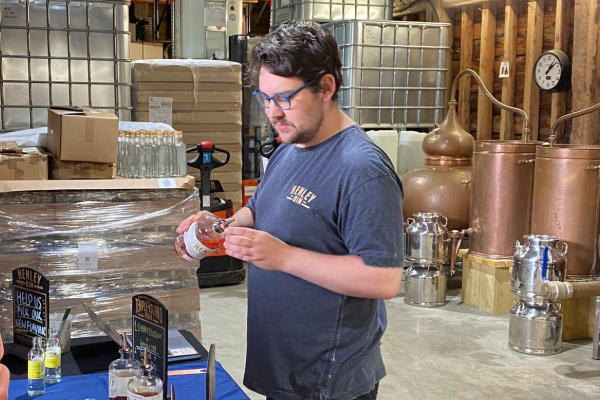
Image Title and Credits: Ben Carmichael at The Henley Distillery
3. Reused As Compost And Fertilizers
According to Miles Pote, Igneous’ co-founder and distiller, the brand’s gin production also generates less waste, which is only the spent botanicals that are used as compost. The Henley Distillery also sends its waste to a third party for it to be composted as per the head distiller, Ben Carmichael. Additionally, Andrew Walder, the founder and head distiller of the SC Dogs distillery, shared that the spent lees left in the stills after the distillation are made into liquid fertilizers.
[[relatedPurchasesItems-31]]
4. Transformed Into Natural Gas
Like unwanted materials being converted into compost and fertilizers, Kindred Spirits Distillery Consulting, the company that provides distilling services, has its waste products transformed into natural gas. Stephen Tomori, the head distiller and lead consultant there, said that one of its clients is an energy company that collects the waste and recycles it to natural gas.
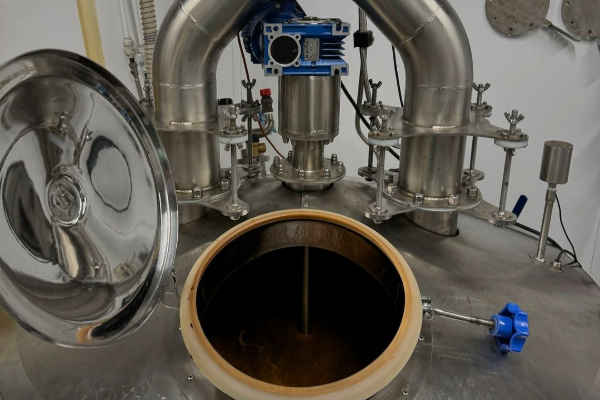
Image Title and Credits: Rum distillation at SC Dogs Distillery
5. Repurposed For Industrial Use
Another distillery that repurposes its waste into something useful is the Ninefold Distillery. Dr. Kit Carruthers, the owner and distiller of the artisanal rum brand, said that all of their waste, which is not used as muck or dunder, is loaded on a trailer and carted off to an anaerobic digestor about 7 miles away. There it is used to help lubricate the internal chambers of the digestor tank.
Also read: Know Your Distillers: Dr. Kit Carruthers
6. Made Into Hand Sanitizer and Soaps
Some distilleries are taking the remains after distillation and making products that can be used by consumers. SC Dogs has its leftover cuts from distillation made into hand sanitizer. Similarly, The Henley Distillery has hand sanitizer made out of its unwanted feints, according to head distiller Ben Carmichael. Philadelphia Distilling also opts for upcycling waste into a consumer-centric product. Its distiller, Theo Loftis, shared that the craft distillery sends a few buckets of its botanical waste to a soap maker.
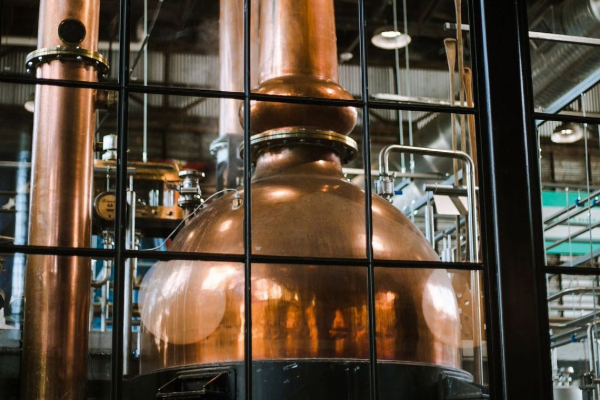
Image Title and Credits: Copper stills at Philadelphia Distilling
7. Upcycled As Edibles
Distilleries are also having some of their unwanted materials turned into edibles. For instance, Craig Cooper, who owns Ginny Pig Distillery and is the head distiller there, said that the leftover remains of fruits from the distillery are used as ingredients in jams. Likewise, Lucy Beard, who co-founded Hope Distillery, said its spent gin botanicals are sent to local chefs who use it as spices in their cooking.
8. Becomes Cattle Food
Westland Distillery transfers all its spent grains to a nearby dairy farm, where it is used as cattle feed, according to Master Distiller Tyler Pederson. Additionally, Andrew Walder of SC Dogs Distillery mentioned that the brand has been harvesting barley, which will be used in its upcoming malting facility. It plans to take the spent grain from the brewing process and use it as farm feed.
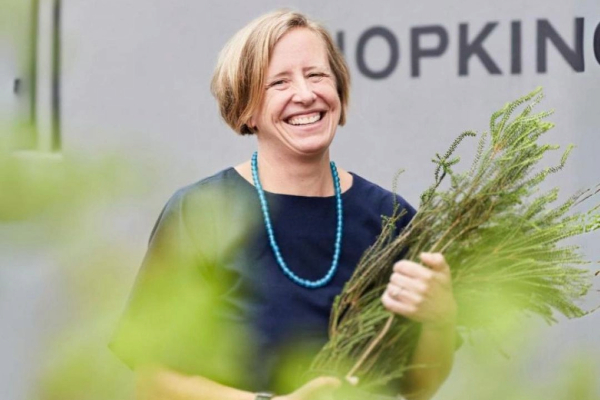
Image title and credits: Lucy Beard of Hope Distillery
Through the above measures, the distilling industry is making significant strides toward achieving sustainability goals and reducing its carbon footprint. By implementing innovative practices like repurposing waste, utilizing renewable energy, and adopting eco-friendly packaging, distilleries are demonstrating that it is possible to produce high-quality spirits while minimizing their environmental impact.
Header image: Jam recycled from berries of Ginny Pig Distillery's Blueberry & Pink Gins
Related links:
Know Your Distillers: Theo Loftis
Know Your Distillers: Lucy Beard
2025 Registrations are now closed



